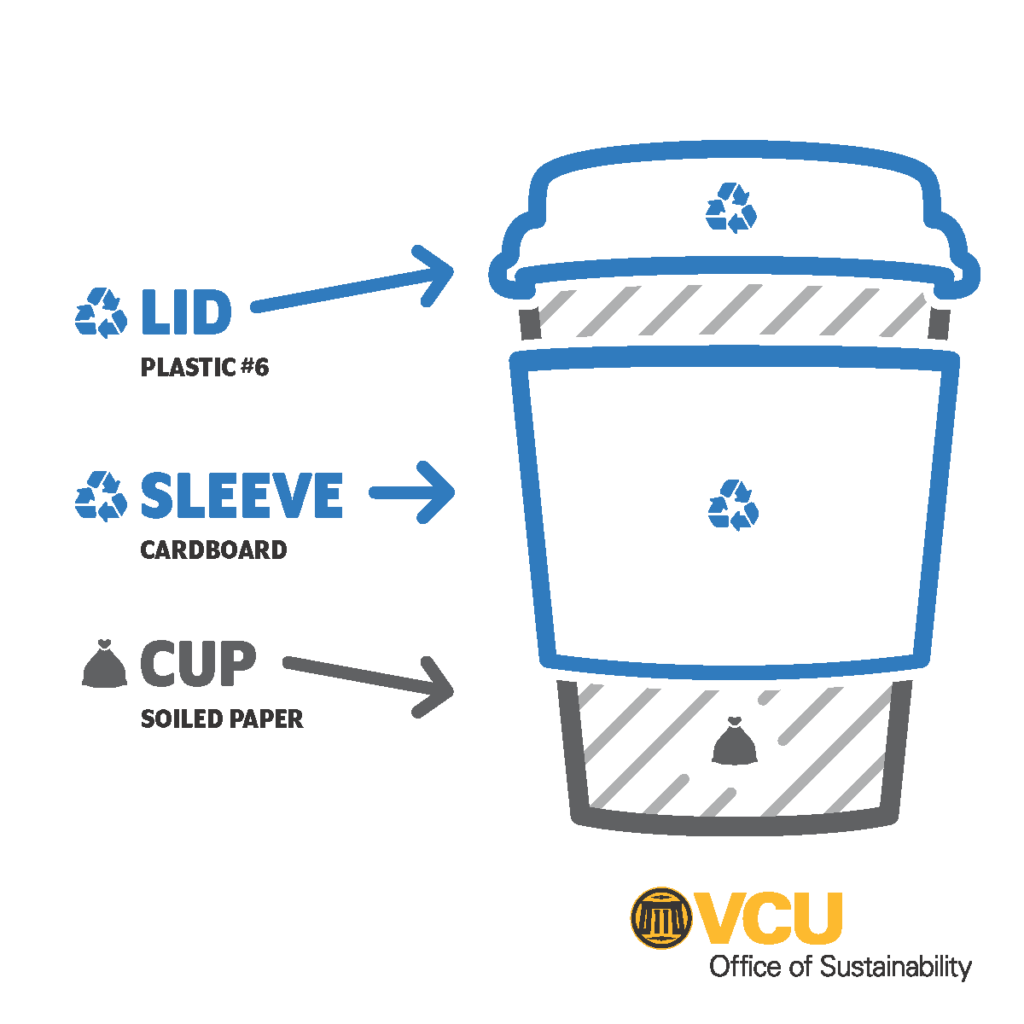Compliance Corner – Issue 3.4
NEW! Starting this month, we’ll feature two of the follow up videos where we share what each of the seven characters from the annual ethics and compliance training did in response to Dr. Evans’ behavior. See who called the Helpline, who didn’t, and who cooperated with the ICO during the investigation.


Planet vs. Plastics: It’s personal.

Driving home from work, I take the same exit to the same turnpike to drive to my neighborhood each day. As I round the curve of the off-ramp I am always struck by the amount of litter on the shoulder of the road, and much of it is plastic. As we come to the end of Earth Month 2024, I’m thinking about plastic a lot. Maybe it’s because of what I see on my drive home, or maybe it’s because earthday.org’s campaign for Earth Day 2024 is “Planet vs. Plastics: 60×40.” The 60×40 is a call to action for a 60% reduction in plastic production by 2040.
There’s a reason why earthday.org is calling for less plastic, but it’s not because litter is unsightly. It’s because it’s personal now.
None could have highlighted this so well as Kathleen Rogers, President of earthday.org, at a recent event:
“The word environment means what surrounds you. In the case of plastics we have become the product itself – it flows through our blood stream, adheres to our internal organs, and carries with it heavy metals known to cause cancer and disease. Now this once-thought amazing and useful product has become something else, and our health and that of all other living creatures hangs in the balance.”
And earthday.org’s Chair Emeritus Denis Hayes added:
“All this plastic was produced by a petrochemical industry with an abysmal record of toxic emissions, spills, and explosions.”
An industry with an abysmal record where the environment is concerned? Reminds me of something I read.
In February of 2024, the Ethics and Compliance Initiative (ECI) released their Blue Ribbon Report, entitled Changing Our Mindset About Corporate Responsibility: A Challenge to the Business Community. In the report, ECI urges industry leaders to do more than follow the laws and regulations designed to protect the environment. They urge them “to move beyond mere compliance and aspire to integrity,” because if organizations simply do the minimum that is required to comply with laws and regulations, what will they do when those don’t exist?
Ethics – Doing the right thing, particularly when rules, regulations or laws are absent, unclear, insufficient, and/or conflict.
ECI Blue Ribbon Report
Ideally, if an organization’s purpose and core values include stewardship, then whether or not they are mandated to protect resources, they will do it anyway.
VCU’s Code of Conduct includes as one of its values Stewardship (“We are good stewards of the resources entrusted to the university”). We aspire to do the right thing and take care of all that we can within our purview. But, going back to the litter on the side of the road and the need to reduce the amount of plastic we produce and use, what does that look like at VCU?
Last year, we interviewed Vice President of Administration Meredith Weiss, who oversees the Facilities division, to learn what she and her team were doing at VCU to practice good stewardship. She shared that VCU’s focus on sustainability has been long-lived, and that, among other things, we received a Gold rating on the STARS scale, reflecting national recognition as leaders in higher education sustainability. VCU’s Director of Sustainability, Ann Kildahl, and her team hope to eventually “see sustainability practices and principles integrated into all aspects of campus life.” One major effort across both campuses has been to focus on diverting waste from landfills by reducing, reusing and recycling. The new ONE VCU Sustainability Plan strives to:
- Introduce innovative strategies to enhance waste reduction, recycling and composting initiatives campuswide.
- Minimize our environmental impact and foster a culture of responsible waste management.
- Implement improvements that promote sustainable practices.
- Aim to create a campus environment that actively encourages waste reduction, recycling and composting.
In fact, diverting waste from landfills is such an important part of VCU Sustainability’s mission that community members can join them once again this year to celebrate a Plastic-Free July.
Plastic-Free July is an excellent opportunity to reflect on our individual plastic consumption habits. For tips on plastic reduction and to learn more about plastic free July, follow VCU Sustainability’s Instagram account @vcusustainability.
Of course, you don’t need to wait until July to reduce the amount of plastic you consume. And it’s OK if you don’t make a major dent in the millions of pounds of plastic waste for the 60×40 challenge. What counts is that you gain an awareness of your plastic consumption habits, and you cut back where you can, and you do what you can to dispose of what you consume appropriately. Take that coffee to-go cup, for example. VCU Sustainability has created an excellent collection of waste signage to help all of us know what to do, and here’s what they suggest for that cup:

Just think of all the other plastic and recyclable materials we use each day here on campus: clamshell containers from the Starbucks protein boxes; plastic strapping from boxes holding reams of printer paper and the cardboard boxes, themselves; plastic beverage bottles and all of those bottle caps; parking tickets stuck under windshield wipers when we’ve stayed too long on Franklin Street (or maybe that’s just me).
If each of us did a self-scan to identify current habits and opportunities, we could join VCU Sustainability in their efforts to divert more waste and more plastic from landfills, and as an added benefit, we would each become better stewards of the resources in and the environment around our community. 60×40 might be a lofty goal, but we must do better now that Planet vs. Plastics is personal.
Sources:
Ethics & Compliance Initiative. (2024, March 22). Changing our mindset about corporate responsibility: A challenge to the business community. Ethics & Compliance Initiative. https://www.ethics.org/document/blue-ribbon-commission-report/
https://sustainability.vcu.edu/about/staff/
https://www.earthday.org/planet-vs-plastics/
“What if someone makes allegations that aren’t true?” (and other concerns people have about a speak-up culture)
A Compliance Case Study

The People:
Carol – A member of the Integrity and Compliance Office (ICO) team
Robyn – A people manager at VCU
The Setting:
Carol and Robyn are each in their own office. They speak by phone.
The Event:
Carol was working on a report at the ICO when the phone rang. Someone was calling into the main number.
Carol: Hello, this is Carol in the Integrity and Compliance Office. How can I help you?
Robyn: Yes, hi! I wanted to speak with someone who handles the investigations when someone makes a report through the Helpline.
Carol: I can help you with that. What questions do you have?
Robyn: Well, it’s mainly about what happens when someone makes an allegation against you. I mean, I’m all in favor of a speak-up culture, but what if someone reports something that isn’t true?
Carol: That’s a great question, and I’m happy to answer it. Can I first ask, has someone made a false allegation against you or a colleague?
Robyn: Not exactly, but I have heard about a situation where someone who was in a leadership position said some things during a team celebration, and then this leader was investigated for misconduct. And the thing was, people remembered what happened differently. It just made me wonder whether I’m protected as a leader. I try to perform my job with integrity, and I feel like I lead my team in a professional manner. But we’re all human, and what if I said something that was misconstrued, or that seemed offensive to someone? If they reported that as misconduct, what would happen?
Carol: I see your concern. And you’re right: sometimes we say or do things that might – unintentionally – offend someone else. And then, when someone points that out to us, we’re often surprised to hear about it and we want to speak with that person to apologize or make it right.
Robyn: Exactly. As managers, I sometimes feel that we’re walking on eggshells; we’re trying to follow all of the rules and ensure that everyone feels safe and valued, but invariably, there are times when we make mistakes.
Carol: I’m really glad you called us today, because I’m sure that many people in your position have questions about this and don’t ask. If you have a few minutes, I’d like to walk you through the investigations process so that you understand the way it works and how we ensure that when an allegation is made, it is thoroughly investigated so that all sides are represented.
Robyn: That would be great! Yes, please, tell me what that would look like.
The Takeaway:
It’s important to be careful with your words and actions, especially when you are in a position of leadership. However, nobody is perfect. For example, a minor comment by a leader about a favorite alcoholic beverage might feel extremely insensitive or inappropriate to a team member in recovery from an addiction; the speaker had no intention of doing harm, but for that person in recovery, it felt harmful. While we can’t always guarantee how others will perceive our words and actions, leaders can cultivate an environment that “embraces the messenger.” Work to ensure that your employees and colleagues know that if you say or do something they feel is unethical, you want them to speak up and tell you about it. When employees know they can push back or ask you what you meant, they’re less likely to feel that they need to report a situation somewhere else, and you have an opportunity to correct the problem before an investigation is required.
If an employee does choose to report their concerns, our office works with other offices in the university to conduct fact-finding and determine, as objectively as we can, what happened in any given situation. We try to speak with everyone who was present during the event that prompted the allegation, or might have some knowledge of it. Sometimes we hear conflicting accounts about what happened, but often there is enough evidence to substantiate or partially substantiate the allegation. Our process is discreet and independent, so we can help to cut through misunderstandings and allow your team to move forward in a productive way.
VCU has a non-retaliation policy for anyone who raises a concern in good faith or participates in an investigation, even if the results are that the allegation was unsubstantiated. To learn more, you can read the Duty to Report and Protection From Retaliation policy, or you can watch this video.
If you see something and aren’t sure, but you have a bad feeling about it, you can submit an inquiry via the Helpline (vcuhelpline.com or (888) 242-6022) or contact us in the ICO to discuss it, just to be safe ([email protected] or (804) 828-2336). Even if we determine no wrongdoing has actually taken place, we can still offer to provide the reporter with resources such as: conflict coaching, facilitated discussions, and mediation.
This month’s case study was co-written by Sara Jones, Senior University Compliance Specialist for the Integrity and Compliance Office. It was based on an actual case investigated by the ICO. The names and details were changed to protect the identities of the people involved.
If you have an idea for our blog, please share it by writing to [email protected]. We’d love to hear from you!